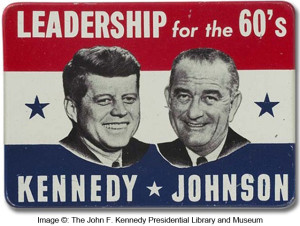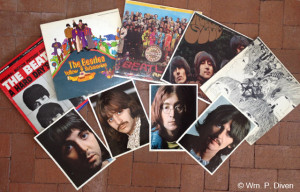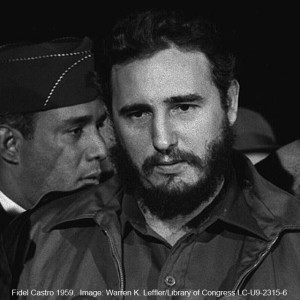The hype and hoorah surrounding the 50th anniversary of the Beatles invading the United States takes us back to a simpler time. Their arrival came a scant 11 weeks to the day after the assassination of President Kennedy. Yes, the country  was still in shock, but the deep distrust of the official explanation for the Kennedy killing had yet to set in, and the government’s deceptions about the war in Vietnam were still in the future as were most of the nearly 50,000 American combat deaths (plus a quarter million North and South Vietnamese civilians, the low-end estimate).
was still in shock, but the deep distrust of the official explanation for the Kennedy killing had yet to set in, and the government’s deceptions about the war in Vietnam were still in the future as were most of the nearly 50,000 American combat deaths (plus a quarter million North and South Vietnamese civilians, the low-end estimate).
So, even though much of adult America disliked Beatle haircuts, the quartet’s charm and upbeat lyrics sparked joy, particularly among a demographic known as teen girls.  Among teen boys, not as much. At our Midwestern junior high school, once the weather warmed a little and we could go outside at lunch, a line mostly of girls locked arms and marched around the grounds chanting “We love the Beatles.” Similarly a moving line of boys, me among them, chanted “We hate the Beatles.” The school dance on March 13 featured four girls as the Beatles singing “I Want to Hold Your Hand,” the breakout hit that topped the Billboard Hot 100 chart just days before the real group landed in New York City.
Among teen boys, not as much. At our Midwestern junior high school, once the weather warmed a little and we could go outside at lunch, a line mostly of girls locked arms and marched around the grounds chanting “We love the Beatles.” Similarly a moving line of boys, me among them, chanted “We hate the Beatles.” The school dance on March 13 featured four girls as the Beatles singing “I Want to Hold Your Hand,” the breakout hit that topped the Billboard Hot 100 chart just days before the real group landed in New York City.
Those early tunes were fine for school dances through the ’60s, and I eventually came around although not until the White Album of 1969. By then I’d moved on from my parents’ Big Band music, discovered Janis Joplin and endured reminders from the principal that as a student council leader I should set an example by keeping my sideburns short. He didn’t say anything about my flared pants. Those weren’t bell bottoms, though, but were radical enough for me being only two years removed from white socks and a flat-top haircut.
Oh, and there’s a 52nd anniversary today: the U.S. imposition of a full trade embargo on Cuba.  That was the best President Kennedy and his brain trust could come up with after the CIA’s Bay of Pigs invasion failed miserably as did our attempts to kill Cuba’s then-Prime Minister Fidel Castro by means including poisoned cigars. No wonder Castro is on conspiracy theorists’ short list of suspects in the Kennedy assassination although he denied any involvement. In 1964 Castro banned Beatles music across his communist country. He, too, came around years later unveiling a statue of Beatle John Lennon while noting they shared the same dreams and were both victims of U.S. government harassment. The Nixon administration didn’t try to kill Lennon, of course, but did use his marijuana conviction in the U.K. as a pretext to order him out of the country. The real reason had more to do with his influence and peace activism.
That was the best President Kennedy and his brain trust could come up with after the CIA’s Bay of Pigs invasion failed miserably as did our attempts to kill Cuba’s then-Prime Minister Fidel Castro by means including poisoned cigars. No wonder Castro is on conspiracy theorists’ short list of suspects in the Kennedy assassination although he denied any involvement. In 1964 Castro banned Beatles music across his communist country. He, too, came around years later unveiling a statue of Beatle John Lennon while noting they shared the same dreams and were both victims of U.S. government harassment. The Nixon administration didn’t try to kill Lennon, of course, but did use his marijuana conviction in the U.K. as a pretext to order him out of the country. The real reason had more to do with his influence and peace activism.

